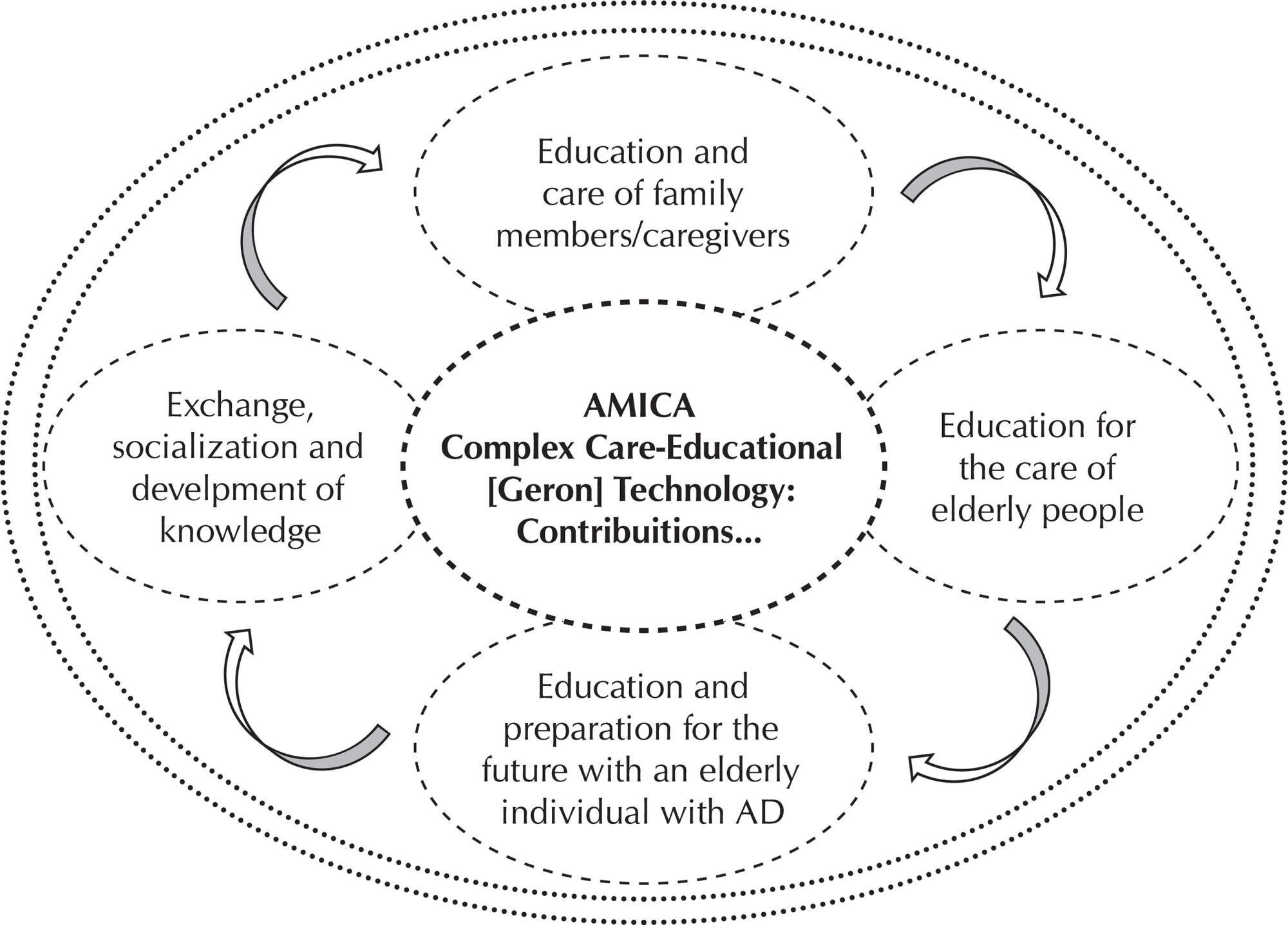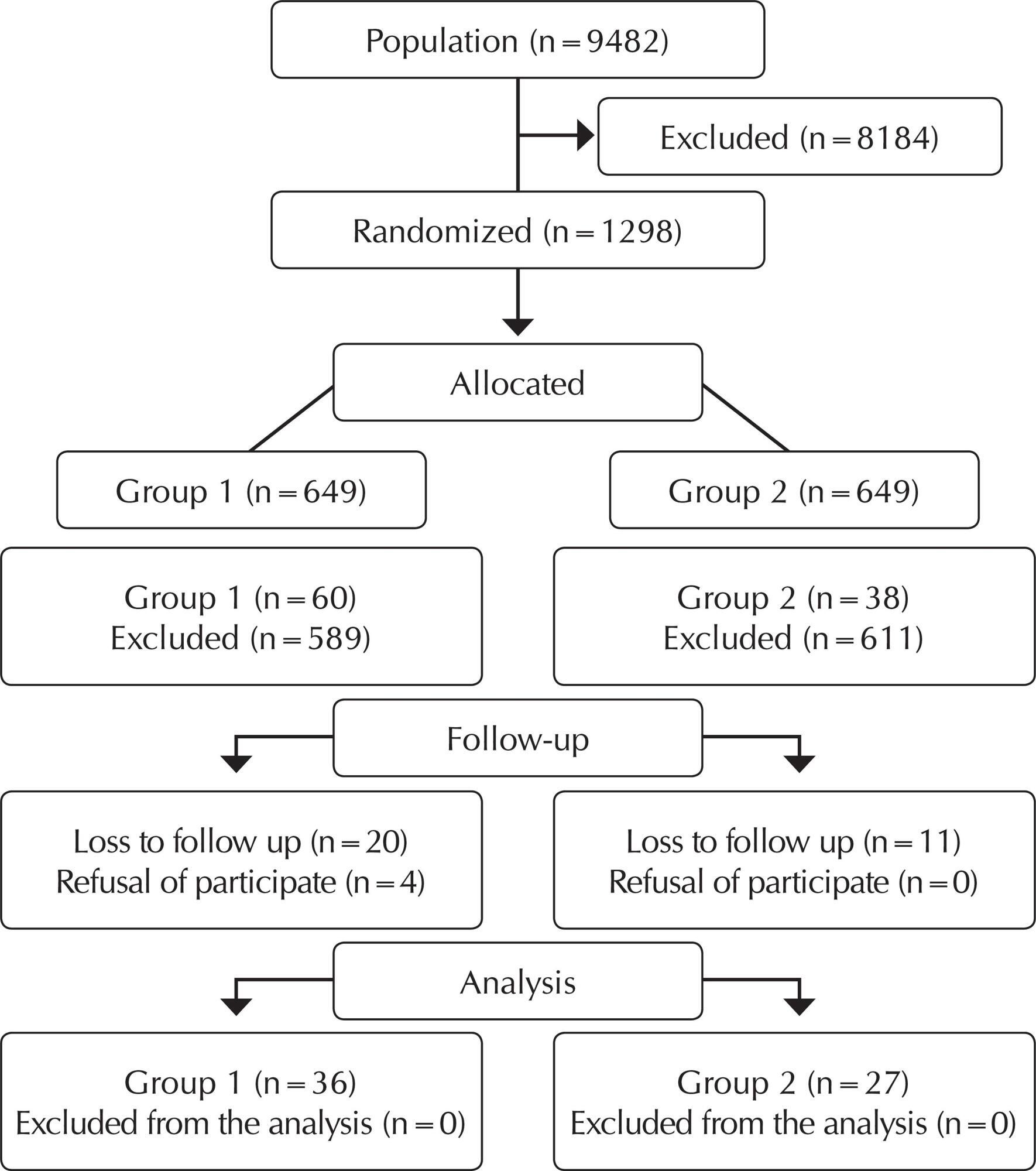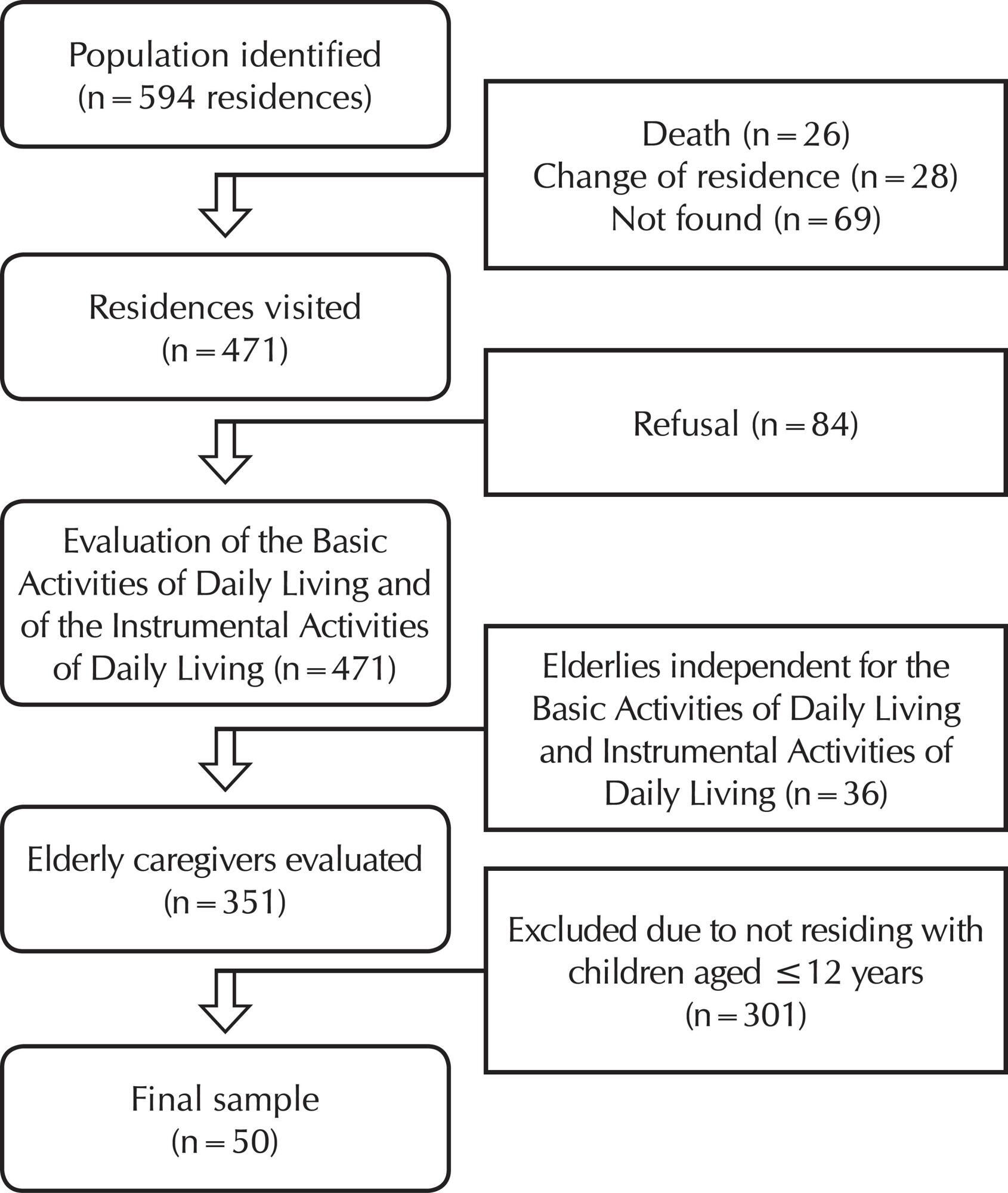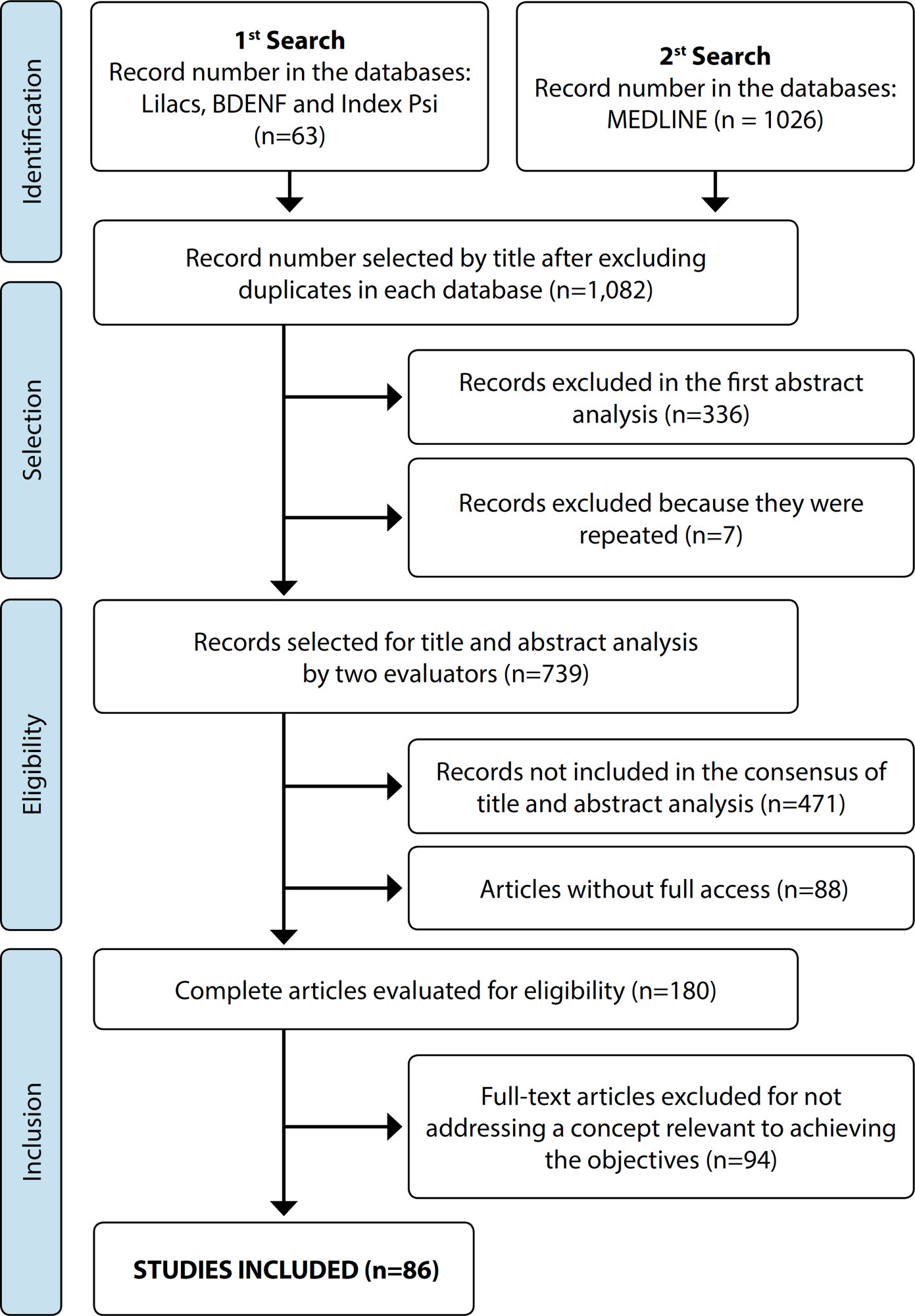-
RESEARCH01-01-2017
Deaths among the elderly with ICU infections
Revista Brasileira de Enfermagem. 2017;70(4):733-739
Abstract
RESEARCHDeaths among the elderly with ICU infections
Revista Brasileira de Enfermagem. 2017;70(4):733-739
DOI 10.1590/0034-7167-2016-0611
Views0See moreABSTRACT
Objective:
to evaluate the clinical outcome of elderly patients admitted to intensive care units who had nosocomial infection, correlating the findings with sociodemographic and clinical variables.
Method:
descriptive research, performed with 308 elderly patients. The collection was made from medical records and covers the years 2012 to 2015. Uni-/bivariate analyses were performed.
Results:
a statistical association was found between the clinical outcome types and the variables age, length of stay, presence of previous comorbidities, main diagnosis, respiratory and urinary tract infections, use of central venous and indwelling urinary catheters, mechanical ventilation, and tracheostomy. The survival curve showed higher mortality among the elderly from the age of 80 on.
Conclusion:
the clinical outcome of the elderly who acquire infection in the intensive care unit is influenced by sociodemographic and clinical variables that increase mortality rates.

-
RESEARCH01-01-2017
Complex educational and care (geron)technology for elderly individuals/families experiencing Alzheimer’s disease
Revista Brasileira de Enfermagem. 2017;70(4):726-732
Abstract
RESEARCHComplex educational and care (geron)technology for elderly individuals/families experiencing Alzheimer’s disease
Revista Brasileira de Enfermagem. 2017;70(4):726-732
DOI 10.1590/0034-7167-2016-0687
Views0See moreABSTRACT
Objective:
To describe the contributions of the Integrated Multidisciplinary Care Group for Caregivers of Individuals with Alzheimer’s Disease as an educational and care (geron)technology in the context of Alzheimer’s disease in elderly individuals from the perspective of family members/caregivers.
Method:
Exploratory, descriptive study with a qualitative approach conducted with 13 family members/caregivers of elderly people participating in the support group of a university institution of the state of Rio Grande do Sul, Brazil. Data collected between January and April 2016 through a semi-structured interview were submitted to discursive textual analysis.
Results:
Family members/caregivers pointed out education and care as contributions of the group; education for care and for the future; exchange, socialization, and development of knowledge through the range of knowledge existing in the Group.
Conclusion:
The Group contributes as a (geron)technology of care and education for care in which knowledge is built and applied in practice, supporting the experienced disorders and improving the quality of care provided for elderly individuals with Alzheimer’s disease.

-
RESEARCH01-01-2017
Falls in institutionalized older adults: risks, consequences and antecedents
Revista Brasileira de Enfermagem. 2017;70(4):719-725
Abstract
RESEARCHFalls in institutionalized older adults: risks, consequences and antecedents
Revista Brasileira de Enfermagem. 2017;70(4):719-725
DOI 10.1590/0034-7167-2017-0107
Views0See moreABSTRACT
Objective:
To analyze the occurrence of falls in institutionalized elderly addressing the risks, consequences and antecedents.
Method:
Cross-sectional study carried out with 45 older adults in Long-Term Care Facilities for the Older adult in João Pessoa, Brazil, in June and July 2016. A socio-demographic questionnaire and the Berg Balance Scale were applied, classifying as risk of fall scores lower than 45. Descriptive statistics and tests were conducted: independent t-test, Anova (Tukey), Chi-square, Mann Whitney. Statistically significance was p <0.05. Data were processed in SPSS version 19.0.
Results:
A total of 66.7% (30) falls occurred, 20% (9) of them in the external area, with 66.7% (30) of the participants having hypertension as a previous disease and, as consequence, the fracture was highlighted with 11.2% (5). The Berg Scale had different scores when compared to the falls suffered by the elderly and previous diseases influenced the occurrence of falls (p <0.05).
Conclusion:
It is necessary to implement public financing policies or partnerships that allow environments adaptations aiming at reducing the risks of falls.
-
RESEARCH01-01-2017
Factors associated with the functional capacity of older adults with leprosy
Revista Brasileira de Enfermagem. 2017;70(4):711-718
Abstract
RESEARCHFactors associated with the functional capacity of older adults with leprosy
Revista Brasileira de Enfermagem. 2017;70(4):711-718
DOI 10.1590/0034-7167-2017-0091
Views0See moreABSTRACT
Objective:
to investigate the association between socio-demographic and clinical factors and the functional capacity of older adults with leprosy.
Method:
cross-sectional analytical study conducted in Fortaleza, Ceará, Brazil, with 77 older adult patients with leprosy in a referral service, through interview, medical records and application of the Katz Index and the Lawton and Brody Scale.
Results:
the mean age was 68.23 years, with prevalence of men, in stable union/married, with mean monthly family income of 2.04 minimum wages, positive bacillary index, clinical dimorphic form and grade zero disability. In the Lawton and Brody scale, independence (58.5%) was predominant and associated to the variables “living arrangement” and “educational attainment”. Total independence (87.0%) was predominant in the Katz Index and statistically associated to the variable monthly family income.
Conclusion:
most of the participants were classified as independent in the instruments used. Furthermore, the instruments pointed to a greater number of associations with socio-demographic and clinical factors not related to leprosy.
-
RESEARCH01-01-2017
Effects of supportive telephone counseling in the metabolic control of elderly people with diabetes mellitus
Revista Brasileira de Enfermagem. 2017;70(4):704-710
Abstract
RESEARCHEffects of supportive telephone counseling in the metabolic control of elderly people with diabetes mellitus
Revista Brasileira de Enfermagem. 2017;70(4):704-710
DOI 10.1590/0034-7167-2017-0089
Views0See moreABSTRACT
Objective:
the purpose of this study was to evaluate the efficacy of telephone-based support for the metabolic control of elderly patients with diabetes mellitus.
Method:
a pragmatic study was conducted in two groups, called G1 (n=36) and G2 (n=27), at a health unit from the countryside of São Paulo state. Patients in G1 group received telephone support over four months, through 16 telephone contacts with educational material; for the G2 group the educational material was mailed.
Results:
significant differences were found. The G1 group showed a reduction of the parameters of fasting glucose, as well as systolic and diastolic blood pressure. In G2 group a modest reduction was noted in some parameters, with no significant difference.
Conclusion:
telephone support was effective to deliver patient education to the diabetic elderly, leading to the reduction of fasting blood glucose. This, combined with other strategies, can contribute to reduce glycated hemoglobin (NCT 01972412).

-
RESEARCH01-01-2017
Stress and optimism of elderlies who are caregivers for elderlies and live with children
Revista Brasileira de Enfermagem. 2017;70(4):697-703
Abstract
RESEARCHStress and optimism of elderlies who are caregivers for elderlies and live with children
Revista Brasileira de Enfermagem. 2017;70(4):697-703
DOI 10.1590/0034-7167-2017-0088
Views0See moreABSTRACT
Objective:
to evaluate the relation between stress and optimism of elderlies who are informal caregivers for elderlies and live with children.
Method:
cross-sectional study on 50 elderlies who provide care to elderlies, live with children, and are registered in the primary health care. The interviews occurred in the participant’s residence and we evaluated characteristics of the care-dependent elderly and of the children, sociodemographic characteristics, stress through the Perceived Stress Scale and optimism through the Pinto and Pais-Ribeiro Spirituality Scale, in the elderly caregiver. For statistical analysis we used the Spearman correlation test.
Results:
the mean level of stress was 23.9 points and of optimism was 3.3 points. Correlation analysis showed that the higher the level of optimism the significantly lower the level of perceived stress of elderlies who provided care to elderlies and lived with children.
Conclusion:
inversely proportional correlation was identified between stress and optimism.

-
RESEARCH01-01-2017
Spiritual well-being and quality of life of older adults in hemodialysis
Revista Brasileira de Enfermagem. 2017;70(4):689-696
Abstract
RESEARCHSpiritual well-being and quality of life of older adults in hemodialysis
Revista Brasileira de Enfermagem. 2017;70(4):689-696
DOI 10.1590/0034-7167-2017-0006
Views0See moreABSTRACT
Objective:
To analyze the relationship between spiritual well-being, sociodemographic, economic, religious, and health variables and the quality of life of older adults undergoing hemodialysis.
Method:
This was a cross-sectional and correlational study conducted with 169 older adults undergoing hemodialysis. The researchers conducted interviews to collect sociodemographic, economic, religious, and health data and applied the Spiritual Well-Being Scale (SWBS) and the WHO quality of life assessment (WHOQOL-BREF and WHOQOL-OLD).
Results:
Most of the older adults attained a moderate level of total spiritual well-being (SWB). In terms of QOL, the psychological domain (66.8; sd=13.9) and social relationships domain (66.8; sd=15.1) presented the highest mean scores. The WHOQOL-BREF domains were positively correlated with the SWB scale, with statistical significance among all domains and subscales except the environmental domain.
Conclusion:
The QOL of older adults was associated with the construct of SWB, either positively or negatively.
-
RESEARCH01-01-2017
Vulnerability of caregivers of the elderly with dementia: a cross-sectional descriptive study
Revista Brasileira de Enfermagem. 2017;70(4):682-688
Abstract
RESEARCHVulnerability of caregivers of the elderly with dementia: a cross-sectional descriptive study
Revista Brasileira de Enfermagem. 2017;70(4):682-688
DOI 10.1590/0034-7167-2016-0579
Views0See moreABSTRACT
Objective:
to evaluate the sociodemographic and clinical profile of the caregivers and its relation with the overburden from the care of the elderly with dementia.
Method:
a cross-sectional descriptive study; the sample was non-probabilistic, developed with caregivers of elderly people with dementia. The field of investigation was the Health Care Center of the Elderly and their Caregivers (CASIC), in the city of Niterói, Rio de Janeiro, Brazil. Data collection took place from February to June 2016, with the following instruments: a sociodemographic questionnaire and Zarit scale.
Results:
fifty percent of the caregivers presented moderate overburden; 38% presented little overburden; and 12% moderate/severe overburden. It was observed that the median of weekly care hours increases as the overburden increases. Caregivers with moderate to severe overburden, in the majority, do not share care.
Conclusion:
it is clear that the overburden of care places the caregiver in conditions of biological and psychological vulnerability.
-
REVIEW12-21-2020
Strategies and competences of nurses in men’s health care: an integrative review
Revista Brasileira de Enfermagem. 2020;73:e20190546
Abstract
REVIEWStrategies and competences of nurses in men’s health care: an integrative review
Revista Brasileira de Enfermagem. 2020;73:e20190546
DOI 10.1590/0034-7167-2019-0546
Views0See moreABSTRACT
Objectives:
to synthesize scientific evidence on nurses’ strategies and competencies in men’s health care.
Methods:
an integrative review carried out in seven databases, with a time frame from 2009 to 2019, using the descriptors “men’s health”, “professional competence”, “nursing”, “nursing care” and “male” in Portuguese and in English.
Results:
ten articles were selected, in which it was demonstrated that nursing professionals develop their professional practices with regard to men’s health care, in convergence with the general skills of the profession. The most used are health care; decision-making; Communication; administration; management; continuing education and leadership, consecutively.
Final Considerations:
professionals’ efforts to strengthen health actions, aimed at male needs, in accordance with the general skills of the profession and the principles and guidelines of the Brazilian National Policy for Comprehensive Care to Men’s Health.

-
ORIGINAL ARTICLE12-04-2020
“The pen is the blade, my skin the paper”: risk factors for self-injury in adolescents
Revista Brasileira de Enfermagem. 2020;73:e20200578
Abstract
ORIGINAL ARTICLE“The pen is the blade, my skin the paper”: risk factors for self-injury in adolescents
Revista Brasileira de Enfermagem. 2020;73:e20200578
DOI 10.1590/0034-7167-2020-0578
Views0See moreABSTRACT
Objective:
to describe the risk factors that influence the self-injury behavior of adolescents assisted at a Psychosocial Care Center for Children and Adolescents, according to subjects’ own perceptions.
Method:
a descriptive, exploratory, qualitative study carried out through medical records and a focus group with 07 adolescents. The statements were submitted to thematic content analysis.
Results:
in the risk factors category, four subcategories emerged: Family adversity factors; Social contagion; Adverse life events; Personal characteristics. Conflicts, lack of support, drug use in the family, meeting someone who cuts themselves, social networks, religiosity, history of sexual violence and bullying were identified as risk factors that influence self-injury.
Final Considerations:
adolescents pointed out the need for prejudice-free dialogues in schools, in health and family devices, configuring protective factors to avoid this practice that comes from several negative events throughout life.

-
REVIEW11-25-2020
Auriculotherapy and reducing chronic musculoskeletal pain: integrative review
Revista Brasileira de Enfermagem. 2020;73:e20190394
Abstract
REVIEWAuriculotherapy and reducing chronic musculoskeletal pain: integrative review
Revista Brasileira de Enfermagem. 2020;73:e20190394
DOI 10.1590/0034-7167-2019-0394
Views0See moreABSTRACT
Objectives:
to describe the scientific evidence on the use of auriculotherapy to reduce chronic musculoskeletal pain in adults and the elderly.
Methods:
integrative literature review conducted in the Latin American and Caribbean Health Sciences, SciVerse Scopus and MEDLINE databases (via National Library of Medicine), in March 2019, with no time frame.
Results:
14 original scientific articles were analyzed, 64.3% of which were classified with level of evidence 2. All productions show the benefit of auriculotherapy in reducing chronic musculoskeletal pain, especially in the lumbar spine (42.9%). The treatment was developed in one or more sessions, using semi-permanent needles (42.9%) and electro-auriculotherapy (21.4%).
Conclusions:
auriculotherapy was effective in reducing chronic musculoskeletal pain, showing itself as an alternative to be used for the promotion and recovery of individuals’ health.

-
REVIEW09-18-2020
Allocation of resources for health care in COVID-19 pandemic times: integrative review
Revista Brasileira de Enfermagem. 2020;73:e20200244
Abstract
REVIEWAllocation of resources for health care in COVID-19 pandemic times: integrative review
Revista Brasileira de Enfermagem. 2020;73:e20200244
DOI 10.1590/0034-7167-2020-0244
Views0See moreABSTRACT
Objective:
To analyze information on resource allocation in the context of the COVID-19 pandemic, published in indexed scientific journals, from December 2019 to March 2020.
Methods:
This is an integrative literature review, which took place in March 2020. All databases were investigated and studies were found only in MEDLINE. After applying the established criteria, six articles were selected.
Results:
It was evident that the allocation of resources is carried out as the demands emerge. The fragility in presenting scientific-methodological evidence that can guide decision makers for assertive allocation of available resources is highlighted. The results showed that studies on this subject are incipient and need to be expanded.
Final considerations:
The need for health organizations and area authorities to be better prepared for the proper use of available resources, with allocation based on scientific evidence and maximization of resources is indicated.

-
REFLECTION07-10-2020
In defense of the Unified Health System in the context of SARS-CoV-2 pandemic
Revista Brasileira de Enfermagem. 2020;73:e20200247
Abstract
REFLECTIONIn defense of the Unified Health System in the context of SARS-CoV-2 pandemic
Revista Brasileira de Enfermagem. 2020;73:e20200247
DOI 10.1590/0034-7167-2020-0247
Views0See moreABSTRACT
Objective:
To discuss the political and structural conditions for establishing the Unified Health System (UHS – Sistema Único de Saúde, SUS) in coping with the SARS-CoV-2 pandemic.
Methods:
Theoretical-reflection study.
Results:
At the first moment named “The global and the local in facing the SARS-CoV-2 pandemic” is presented the health crisis that took place worldwide and the government actions to combat COVID-19. A second moment named “Between dismantling actions and resistance, the UHS is the best way to face the SARS-CoV-2 pandemic”, reflects on the neoliberal attacks on the health system and how it resists, remaining the main pandemic response strategy.
Conclusion:
The strengthening of democracy and the defense of the UHS are the way out of the crisis. It is believed that this reflection generates – in everyone who deals with caretaking – the political action, the ethical attitude, the desire for valorization and the spirit of struggle in defense of the UHS and human life.
-
REVIEW05-28-2021
Scientific production about palliative care and communication in online journals: a scoping review
Revista Brasileira de Enfermagem. 2021;74(2):e20190378
Abstract
REVIEWScientific production about palliative care and communication in online journals: a scoping review
Revista Brasileira de Enfermagem. 2021;74(2):e20190378
DOI 10.1590/0034-7167-2019-0378
Views0See moreABSTRACT
Objectives:
to characterize publications about palliative care and communication, with an emphasis on the approaches addressed, disseminated in online journals.
Methods:
it is a scope review, in which the mnemonic strategy Problem, Concept and Context was used, based on database research. The sample consisted of 86 publications.
Results:
most publications were written in the English language, published in the journal BMC Palliative Care, and with level of evidence IV. As for the approaches approached, the following stand out: Importance of communication in palliative care; Breaking the bad news in palliative care; Training professionals/staff to communicate in palliative care; and Communication strategies in palliative care.
Final Considerations:
the review made it possible to map a significant number of publications on palliative care and communication. It is recommended to produce new studies with better scientific evidence that guide the assistance of health professionals.

-
ORIGINAL ARTICLE12-13-2019
Quality of life in the climacteric of nurses working in primary care
Revista Brasileira de Enfermagem. 2019;72:154-161
Abstract
ORIGINAL ARTICLEQuality of life in the climacteric of nurses working in primary care
Revista Brasileira de Enfermagem. 2019;72:154-161
DOI 10.1590/0034-7167-2018-0306
Views0See moreABSTRACT
Objective:
to evaluate the quality of life of primary care nurses in the climacteric.
Method:
A cross-sectional descriptive-analytic study, performed with 98 female nurses, aged 40-65 years, using the WHOQOL-Bref questionnaire.
Results:
the worst level of quality of life was observed for professionals aged 50-59 years, non-white, specialists, divorced or widowed, with children, a lower income, with another employment relationship, a weekly workload of more than 40 hours, who consumed alcoholic beverages weekly, with chronic disease, in continuous use of medications, sedentary, who did not menstruate and did not receive hormonal treatment, and who went through menopause between the ages of 43-47 years.
Conclusion:
Although the variables “physical activity” and “age” have a statistically significant association with quality of life, other variables seem to interfere in these professionals’ lives, indicating the need for a more critical and deep reflection on these relations.
-
ORIGINAL ARTICLE09-21-2020
Incontinence associated dermatitis in elderly people admitted to a university hospital
Revista Brasileira de Enfermagem. 2020;73:e20190374
Abstract
ORIGINAL ARTICLEIncontinence associated dermatitis in elderly people admitted to a university hospital
Revista Brasileira de Enfermagem. 2020;73:e20190374
DOI 10.1590/0034-7167-2019-0374
Views0See moreABSTRACT
Objective:
To identify the frequency and factors associated to incontinence associated dermatitis in elderly people.
Methods:
Cross-sectional study with 202 elderly patients admitted to a university hospital between September 2017 and January 2018. Data collection included: cognitive screening, sociodemographic and clinical questionnaire. It was performed exploratory and descriptive analysis, where prevalence and ratios (PR) were calculated.
Results:
Prevalence of injury was 9.4%, age range 70-79 years (13.5%), African American (21.4%), hospitalization period ≥ 21 days (44.4%), in use of nasogastric tube (33.3%), medical device (11.3%), restricted mobility (18.5%). It was associated with hospitalization period, use of nasogastric tube, restricted mobility, medical devices, and cognition.
Conclusion:
It was confirmed an average frequency of incontinence associated dermatitis in elderly patients and association to factors such as hospitalization period, immobility, cognition, use of nasogastric tube and devices. It must be highlighted the importance of prevention measures, early detection, assessment and monitoring of this type of injury.
Search
Search in:
Nuvem de Tags
Adolescente (85) Atenção Primária à Saúde (239) COVID-19 (91) Criança (91) Cuidados de Enfermagem (269) Educação em Enfermagem (151) Educação em Saúde (139) Enfermagem (930) Enfermagem Pediátrica (86) Estudantes de Enfermagem (77) Estudos de Validação (131) Família (87) Idoso (208) Promoção da Saúde (99) Qualidade de Vida (104) Saúde do Trabalhador (86) Saúde Mental (145) Saúde Pública (82) Segurança do Paciente (150) Tecnologia Educacional (100)



